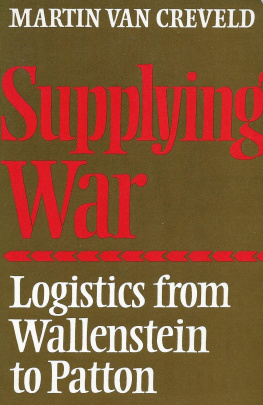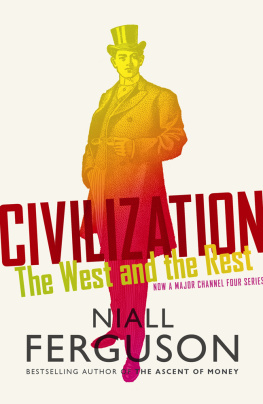Pussycats
By Martin van Creveld
DLVC Enterprises
Also by Martin van Creveld
A History of Strategy: From Sun Tzu to William S. Lind (2015)
Conscience: A Biography (2015)
Equality: The Impossible Quest (2015)
Conscience: A Biography (2015)
The Privileged Sex (2013)
Wargames: From Gladiators to Gigabytes (2013)
The Age of Airpower (2011)
The Land of Blood and Honey: The Rise of Modern Israel (2010)
The Culture of War (2008)
The American Riddle (in Russian) (2008)
The Changing Face of War (2006)
Defending Israel (2004)
Moshe Dayan (2004)
Men, Women and War (2001)
The Art of War: War and Military Thought (2000)
The Rise and Decline of the State (1999)
The Sword and the Olive: a Critical History of the Israel Defense Forces (1998)
Airpower and Maneuver Warfare (1994)
Nuclear Proliferation and the Future of Conflict (1993)
The Transformation of War (1991)
The Training of Officers: From Professionalism to Irrelevance (1990)
Technology and War: From 200 B.C to the Present (1989)
Command in War (1985)
Fighting Power: German and U.S Army Performance, 1939-1945 (1982)
Supplying War: From Wallenstein to Patton (1978)
Hitlers Strategy, 1940-41: The Balkan Clue (1973)
Pussycats
Why the Rest Keeps Beating the West
and What Can Be Done About It
By Martin van Creveld
DLVC Enterprises
Library of Congress Cataloguing-in-Publication Data
Van Creveld, Martin, 1946
Pussycats,
Why the Rest Keeps Beating the West
and What Can Be Done About It
First Edition: 2016
ISBN: 978-1533232007
Copyright 2016 by Martin van Creveld
All rights reserved. No part of this book may be reproduced or transmitted in any form or by any means, electronic or mechanical, including photocopying, recording, or by any information storage and retrieval system, without permission in writing from the Publisher.
DLVC Enterprises
POB 2766
Mevasseret Zion
90805 Israel
Bring forth the mighty men, let them press forward, let them rise up. Beat your plowshares into swords and your pruning hooks into spears. Let even the weak man say, I am a mighty warrior.
Joel 3.9-10
List of Contents
Preface xi
Introduction: The Record of Failure
Chapter I. Subduing the Young
1. A Tale of Two Childhoods
2. They Cant Handle It
3. Prohibit and Censor
4. Becoming Infantilized
5. From Austria Came a Man
Chapter II. Defanging the Troops
1. To Horse, to Horse!
2. The War on Men
3. A Government of Lawyers
4. The de-Militarized Military
5. Soldiers into Mercenaries
Chapter III. Feminizing the Forces
1. In Pursuit of Equality
Amazones Antianeirai
3. Retaining Privilege
4. In the Land of Doublethink
5. The End of Masculinity
Chapter IV. Constructing PTSD
1. Seek, and You Shall Find
2. Achilles in Vietnam
3. From Soldiers Heart to Combat Fatigue
4. The Great Epidemic
5. Damaged Goods?
Chapter V. Delegitimizing War
1. Of Might and Right
2. The Rise of Rights
3. The Demise of Duty
4. Learning to Say No
5. The Absolute Evil
Conclusion: Hannibal intra Portas
Thanks
Endnotes
Index
Preface
I am one thing; my books are another. A few of my relatives, friends, and students have died in war, so I know a little of the sorrow and the grief it invariably brings. I have been under fire a couple of times, so I know a little of what it feels like. And I have heard, from no great distance, the sweetest, most melodious sound there isthat produced by the guns of ones own side when they finally start firing back. But I have never worn my countrys uniform, nor served in its army, nor fought in any of its numerous wars, big or small, let alone exercised command over soldiers. The reason why, unlike most of my fellow-citizens, I did not do even the first of these things is because I was born with a cleft palate. Back in 1964, when it was my turn to be drafted, that was considered a sufficiently serious problem for the IDF (Israel Defense Forces) to disqualify me on medical grounds.
At the time few Israelis, least of all young ones, doubted that the IDF was the greatest organization God had created since the beginning of the world. This made being rejected a serious blow to my ego. It also brought in its wake some more or less unpleasant, and more or less humiliating, social and administrative problems. Later, though, once I had chosen my profession as a military historian, it made me think seriously about some of the things I had and had not missed. Here I want to put some of my thoughts on paper.
War is a practical activity above all. The objective is not to engage in reflection, nor to join the chattering classes, nor to produce learned papers. It is all about this little dumb business of victory, as the early twentieth-century German chief of staff, Field-Marshal Alfred von Schlieffen, once put it. Undoubtedly it contains many things that can only be learned by experience. The best teacher of war is war. Yet experience is not everything. To quote another and much greater Prussian soldier, Frederick the Great: Had that been the case, then the best commander ought to have been the mule that carried Prince Eugene
of Savoy (1663-1736), the Austrian commander who defeated both the French and the Ottomans, on campaign. Nor is experience of war necessarily the same thing as the ability to understand it, analyze it, and describe it to others. Has there ever been anybody who did so better than Homer, the blind bard, did?
Besides, rarely is one persons experience broad enough to cover all the relevant fields. That is why whoever fails to study the experience of others is a fool. It is study, and study alone, that can put experience into the proper perspective, so as to take the mind out of the familiar groove and provide it with the wings without which it cannot deal with the new and unexpected. The later the date, and the more complicated war grew, the clearer it became that to understand it and practice it, more was needed than the ability to wield a sword, fire a gun, fly an aircraft, or launch a missile.
Acknowledging this fact, the most advanced armed forces started building impressive education systems which, in some ways, have no equivalents in the civilian world. First, during the years around 1740, came military academies for training subalterns. They were followed by staff collegesaround 1780and war colleges (from the beginning of the twentieth century on). And even this list does not include all sorts of other courses young officers often go through before they join their arms of service.
In general, the more advanced the course, and the more high-ranking the officers attending it, the greater its theoretical contentas is its tendency to encompass other fields such as politics, economics, sociology, technology, culture, and what not. The objectives were a.) to make the students assimilate the distilled experience both of their own forces and of others; and b.) provide them with tools that would enable them to proceed on their own when confronted with new and unexpected challenges. As the growing presence of civilian students shows, especially at the higher levels, such study does not necessarily require previous military experience.
Furthermore, it should not be overlooked that, of all human organizations, the military is not only one of the most total but also the most hierarchical and most disciplined. Often, too, it is surrounded by considerable barriers that separate it from society at large. Such organizations are essential for waging war. Without them, doing so would be utterly impossible. On the other hand, spending too much time in the organizations in question, to the exclusion of all the rest, can easily cause originality to be suppressed and innovation to be stifled.














